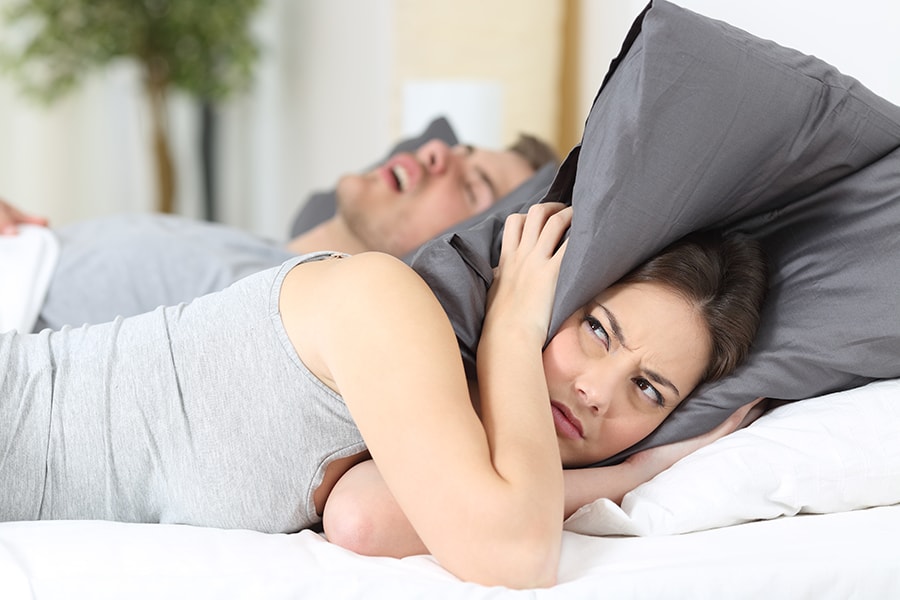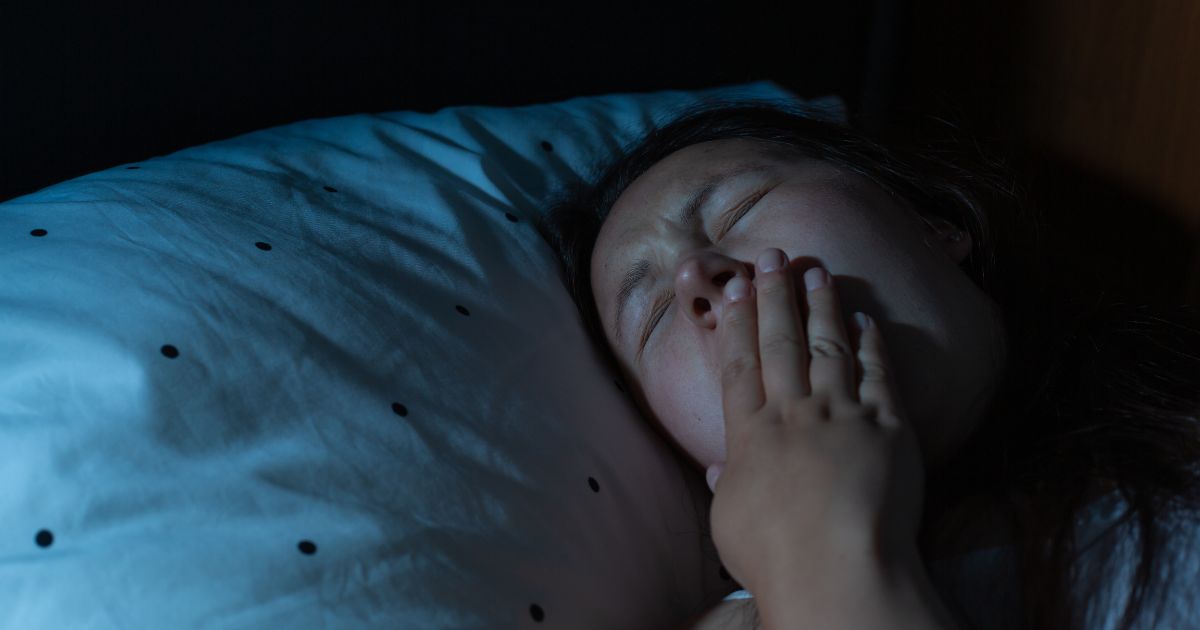Snoring is the harsh sound that comes when air flows through the tissues of one’s throat, causing the tissues to vibrate and make noise. Snoring itself is usually harmless, and nearly everyone does it every once in a while. However, snoring can also be an indication of a number of serious health conditions. Whether this is the case or not, snoring is frequently a nuisance to partners who are trying to sleep. So here is some useful information on what causes snoring, what can be done about it, and when it is severe enough that treatment for snoring is called for.
Causes and Risk Factors that Lead to Snoring
There is a wide variety of possible causes for snoring, ranging from benign and simple to treat, to potentially dangerous.
Mouth Anatomy: Low and thick palates can narrow airways. If your uvula is elongated, it could obstruct airflow and cause snoring.
Being Overweight: Overweight people tend to have extra tissues in the back of the throat that reduces airflow, causing snoring.
Nasal Problems: Nasal congestion or crooked partitioning between the nostrils can contribute to snoring.
Sleep Position: Sleeping on the back causes gravity to pull down on the throat and tongue, obstructing the airway and contributing to snoring.
Sleep deprivation: Not getting enough sleep can cause further throat relaxation, leading to snoring. Find out more about the effect of sleep deprivation here.
Alcohol: Drinking too much alcohol before sleeping can cause snoring, as the substance relaxes throat muscles and causes airway obstruction.
Gender: Males are more prone to snoring.
Family history: Having relatives who snore or have obstructive sleep apnea increases the likelihood of inheriting such conditions.
Complications
Obstructive Sleep Apnea: As previously stated, snoring in itself is not a serious issue. However, if snoring is extremely loud it may cause sleep disruption, excessive awakenings and daytime sleepiness. chronic snoring is associated with other disorders such as obstructive sleep apnea (OSA). The louder you snore the more likely you are to have obstructive sleep apnea. OSA is when a person’s breathing is repeatedly stopped and started during sleep as a result of the throat relaxing and restricting the airway. It should be checked for if your snoring is accompanied by the following symptoms:
- Breathing Pauses, Choking, Gasping or Apnea: Is there a pause in breathing in between snoring? Do these interruptions resemble choking or gasping?
- Excessive Daytime Sleepiness: If the snoring and cessation of breathing is excessive, it can disrupt a restful sleep and make a person fatigued and drowsy during the day.
- Hard Time Concentrating: A side effect of the fatigue.
- Restless Sleep: Another side effect of the breathing disruptions.
- Sore Throat Upon Waking: The pressure of the airflow can lead to strain on the airway tissues, resulting in sore throat.
- High Blood Pressure: Interrupted breathing will cause lower blood oxygen levels and the cardiovascular system will attempt to compensate for this. This can have lasting effects if the issue continues on for too long.
When to Seek Consultation and Possible Treatment for Snoring
See a doctor if you have any of the above symptoms, since they are signs of obstructive sleep apnea (OSA) or other disorders. When the condition is determined, the best possible treatment for snoring and associated disorders will be determined. These can include:
CPAP Machines: CPAP (continuous positive airway pressure) therapy is a treatment for people with obstructive sleep apnea, helping them sleep better and reducing the symptoms and effects of their disorders.
Oral Appliances: These are devices one can wear that can help position the jaw, tongue and soft palate to maximize airflow and prevent snoring.
Lifestyle Modifications:
- Losing weight: People who weigh less tend to snore less because they have less neck mass.
- Sleeping on the side: This reduces the effects of sleeping on the back. The tongue slides to the side of the mouth rather than back into the throat, minimizing airway blockage.
- Raising the head of the bed: Elevating the head of the bed by 4 inches does the trick, reducing the effects of sleeping on your back.
- Addressing nasal congestion or obstruction: Allergies, deviated septum, other respiratory issues can contribute to snoring and sleep apnea. Reduce allergens by removing or reducing dust and pollens. A prescription for steroid sprays, antihistamines, etc. can also work.
- Limiting alcohol: Avoid alcohol consumption before bedtime to prevent relaxation of the throat muscles.
- Quitting Smoking
- Getting enough sleep
Consult a Doctor to Determine If You Need Treatment for Snoring
Snoring is not only unpleasant, it can be an indication of a potentially serious health problem. If you are snore regularly or are experiencing any of the issues listed above, contact Jacksonville Sleep Center right away. We can provide consultations, diagnostic services and treatment for snoring to help you rest easy. Call today to schedule an appointment with the Dream Team!






